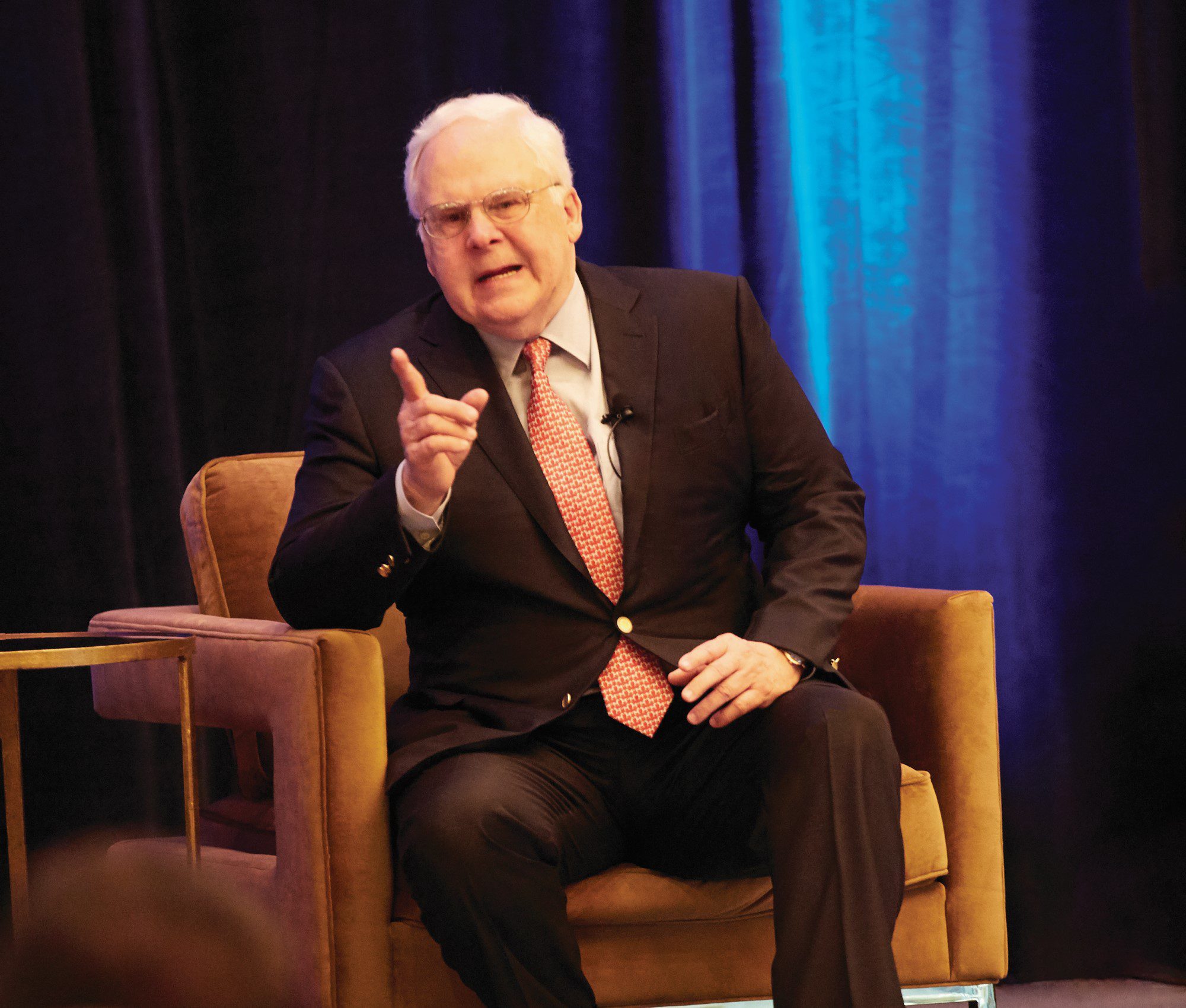FedEx’s Fred Smith: Conversations On Leadership And Innovation


FedEx’s Fred Smith announced this afternoon that he’d be stepping down from the chief executive post effective June, and would be taking on the role of executive chairman at the company he founded nearly 50 years ago.
In a statement issued Monday, the company said Raj Subramaniam, President and Chief Operating Officer, will be promoted to President and CEO.
“FedEx has changed the world by connecting people and possibilities for the last 50 years,” Smith in the statement. “As we look toward what’s next, I have a great sense of satisfaction that a leader of the caliber of Raj Subramaniam will take FedEx into a very successful future. In my role as Executive Chairman, I look forward to focusing on Board governance as well as issues of global importance, including sustainability, innovation, and public policy.”
It’s hardly an overstatement to say that Smith is one of the most influential businessmen of the last century. Over the past five decades, the company—and more, the concept—he created became the core muscle and sinew of globalization. The overnight delivery systems he pioneered accelerated, perhaps even allowed, for the development of multiple industries (chief among them Amazon’s e-commerce revolution) and were foundational in bringing to life the just-in-time supply chains that underpin so much of the productivity and internationalization of commerce we’ve come to depend on.
In 2004, Smith was named our CEO of the Year, and in a subsequent interview with Chief Executive, he was asked how much longer thought he would stay in the job. “I like what I’m doing at FedEx for a very fundamental reason,” he said. “And that is because it is an important industry that sits right at the middle of almost everything else that’s going on. It is a vitally important company to the commerce of the country and the world. You mentioned Michael Dell a few moments ago. I’m a great admirer of Michael Dell. He’s one of the great businessmen alive today.
“If he were sitting here, he would tell you that absent the transportation capabilities that FedEx pioneered, and we have able competitors too, but absent those fast cycle transportation capabilities, the business model that has changed the world would not have been possible. Sam Walton and I talked about, on more than one occasion. He didn’t know if he was a good retailer—but he thought he was a pretty good logistician.”
You can read that full interview here, which is well worth your time, filled with prescient commentary on where the world was going—and is still going—as well as his thoughts on what it really takes to be a great CEO.
I had the privilege to interview Smith a couple years ago in Memphis on where he thought business and the supply chain were headed, as well as short-termism, Wall Street and a host of other issues. My favorite takeaway, one that’s stuck with me amid all the change and complexity that spins around every business and every industry, was his take on the core job of running a company:
“The fundamental thing that everybody in business has always got to realize in a market-driven economy is that you’re in the process of being commoditized,” Smith said. “Commoditization always leads to sustenance earnings at best, so you have to innovate and find those blue ocean opportunities.
“That’s hard because you’ve attracted a set of skills to pursue your core competencies, and now things have changed, so how do you manage that? That is, I think, quasi-art and quasi-science. And the really good CEOs know how to do that, and the CEOs who are not so good don’t.”
That simple, and that hard. For five decades, Fred Smith has been one of the ones who always knew how to do it.


0

1:00 - 5:00 pm
Over 70% of Executives Surveyed Agree: Many Strategic Planning Efforts Lack Systematic Approach Tips for Enhancing Your Strategic Planning Process
Executives expressed frustration with their current strategic planning process. Issues include:
Steve Rutan and Denise Harrison have put together an afternoon workshop that will provide the tools you need to address these concerns. They have worked with hundreds of executives to develop a systematic approach that will enable your team to make better decisions during strategic planning. Steve and Denise will walk you through exercises for prioritizing your lists and steps that will reset and reinvigorate your process. This will be a hands-on workshop that will enable you to think about your business as you use the tools that are being presented. If you are ready for a Strategic Planning tune-up, select this workshop in your registration form. The additional fee of $695 will be added to your total.

2:00 - 5:00 pm
Female leaders face the same issues all leaders do, but they often face additional challenges too. In this peer session, we will facilitate a discussion of best practices and how to overcome common barriers to help women leaders be more effective within and outside their organizations.
Limited space available.

10:30 - 5:00 pm
General’s Retreat at Hermitage Golf Course
Sponsored by UBS
General’s Retreat, built in 1986 with architect Gary Roger Baird, has been voted the “Best Golf Course in Nashville” and is a “must play” when visiting the Nashville, Tennessee area. With the beautiful setting along the Cumberland River, golfers of all capabilities will thoroughly enjoy the golf, scenery and hospitality.
The golf outing fee includes transportation to and from the hotel, greens/cart fees, use of practice facilities, and boxed lunch. The bus will leave the hotel at 10:30 am for a noon shotgun start and return to the hotel after the cocktail reception following the completion of the round.